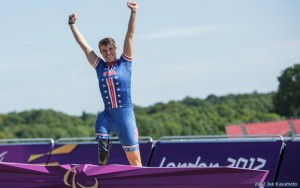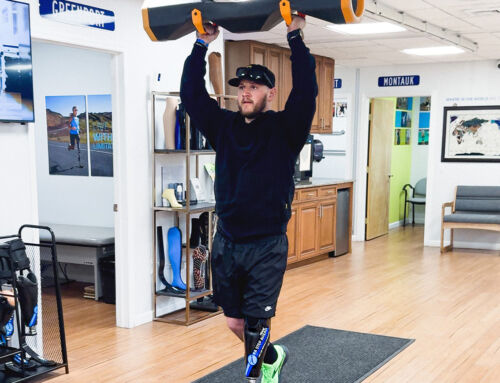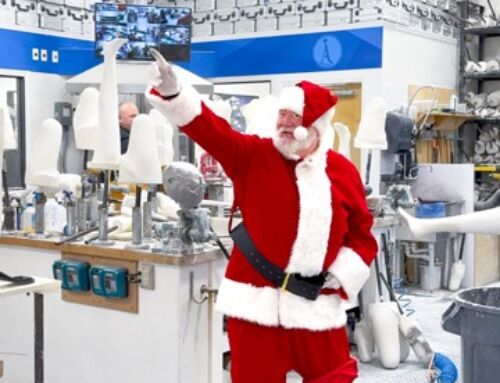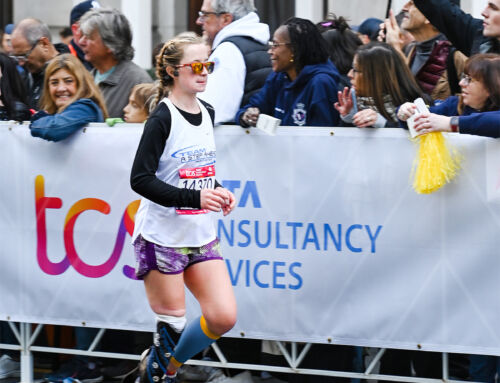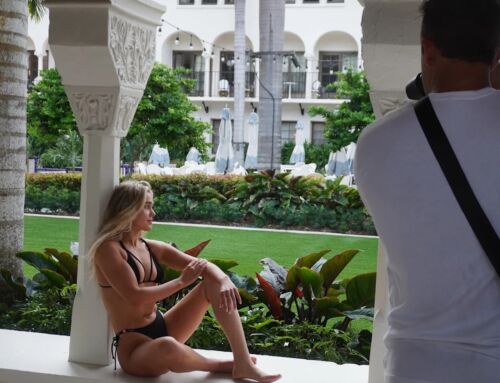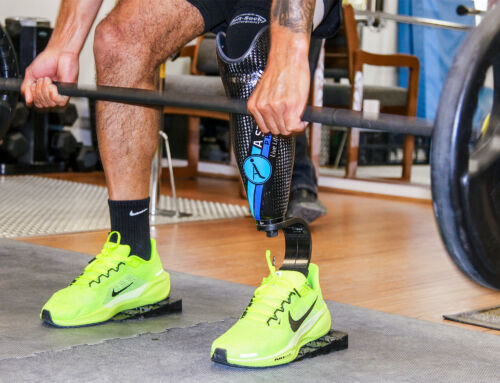After eight trips to the Paralympic Games — four in the summer, four in the winter — multisport athlete Allison Jones is calling it a career.
Born in Amarillo, Texas, she made her winter debut in Salt Lake City in 2002 as an alpine skier and her summer debut in 2004 as a cyclist. She’d go on to win eight Paralympic medals, including two golds, and win another 22 world championships medals — including 10 golds — in cycling. In 2012, she became just the second American woman ever to win gold medals in both the summer (cycling, road time trial, London 2012) and winter (alpine skiing, slalom, Torino 2006) Paralympics.
Now settling into a new home in Portland, Oregon, with wife Sara Jarrell and working full-time as an engineer, Jones spoke with TeamUSA.org about her long and impressive career.
You went to eight Paralympics. What does that number mean to you?
It’s a freaking long period of time! Luckily I started when I was young. I was 17 at my first Games.
What do you remember about your first Paralympic race ever?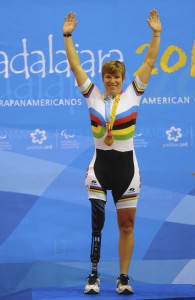
I was scared (expletive). It was the downhill on the women’s Olympic downhill course. I’m pretty sure I was just out to have a good time and get down the course and remember where I was supposed to go. I remember where people were standing on the side of the course, and that’s not exactly what you’re supposed to be focused on at downhill. But I was never a great downhiller, I was just there to represent and have fun and be part of the experience.
How about your first-ever medal, a silver in super-G in 2002?
We swept. I remember that it was me and my two teammates on the podium and we just had a great time. The fact that it happened at all was pretty freaking awesome.
Did you think then that you’d still be competing 16 years later?
I don’t know. I know I was still figuring out how to graduate high school. I don’t think I even knew what college I was going to go to yet. In Salt Lake I was going to be graduating in a couple months and that’s where my priorities were.
What was the most difficult race of your career?
They’re all hard. You’re never not going to give 100 percent, and every time I lost a medal at the Paralympics I cried like a baby. I never did that at regular competitions. But the most pressure I put on myself was at Torino because I was in bronze after the first run in slalom. All the coaches were stoked I was sitting in bronze and they were happy I was in medal position, but I really wanted to win so I put a lot of pressure on myself that race.
For cycling, it was the London time trial course. That was mine to lose because it was a great course, it was my style of course and I’d been riding well to that point. You never know what different factors are going to work out and how everyone else is going to ride their race, but I know I gave everything I had and I was stoked about that. That was a tough race but a fun race.
Were there any other great challenges that when you look back you think, “Wow, I’m really glad I pushed through that,” or, “Man, that was really, really hard”?
Well, my dad died two months before the Rio Games, and that was pretty epic. That’s not something you ever plan for. I was pretty good at sports psychology and focusing on the race, but no matter how many years experience you have, to have that loss that close to the Games, there’s no playbook, no preparation for that. I definitely was not prepared for that blow to my life. I’m glad I got through the Games. I knew they weren’t going to be my best. I’m super stoked my team got me nominated to carry the flag (in the Opening Ceremony) and advocated so hard for me, and I’m grateful that I did get to carry the flag at my last Games.
I just knew I had to race one more season and have the showing I was supposed to have at Rio. Pushing through that, going to one more worlds and winning the road race (in 2017), it played out like a fiddle. I was pretty happy knowing that was how the race was supposed to go in Rio, not the way it did. I was happy to put it together and have one solid last race.
What has this experience as a Paralympian overall meant to you and your life?
Oh man, I have a real job now in engineering, and I came away with people skills like no one’s business. When you’re dealing with a team and having to coexist with people you’re competing with it gives you so much perspective on what really matters with interoffice relationships. Like, whatever you’ve got going on personally, cool, whatever, it doesn’t affect me. Having that has made a huge impact.
That experience of working together and being an individual on a team, and then just having that experience of what it means to be on the road, to be prepared, to be working and playing and being adventurous and not being afraid to step up. Learning how to do your best and always stand by it, and make sure you’re prepared for what comes next. I don’t think there’s another experience out there that can replace that. Some of my best friends are from other countries and they were competitors, but at the end of the day we have that camaraderie and friendship and that shared experience.
Out of your whole career and all you’ve accomplished, of what are you most proud?
Watching the next generation coming up. It reminds me of when I was a kid and had a generation ahead of me telling me this could be something great if I stuck with it. I still follow all the sports. I still text people and email people after their races. It’s also been cool to watch the movement grow from when I started to when I finished. It’s such a different event. In Salt Lake the Paralympics were still pretty unknown. Now we have Paralympic-only sponsors and resources and it’s cool to see that change happen. There are more countries involved and more athletes and more events happening, and that’s been cool to see.
